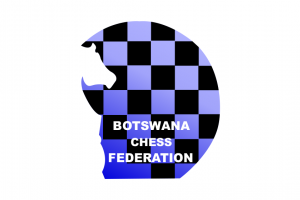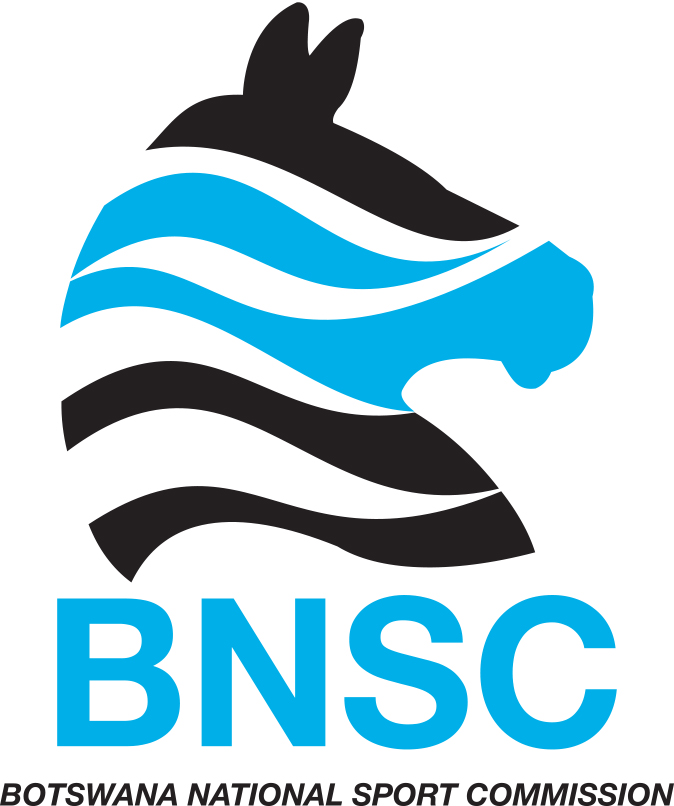
Botswana Chess Federation is a non-profit making organisation, affiliated to the Botswana National Sport Commission (BNSC 1982), African Chess Union (ACU 1982) and Federation International Des Echecs (The World Chess Governing body FIDE 1982).
Objectives
- To advance chess and chess playing in the country as a whole. This shall be achieved by:
- Staging open (including non-members) and closed (strictly for members) chess tournaments.
- Inviting members to take part in individual and team tournaments.
- Chess Clinics in Schools and other public places for the youth.
- Inviting members to take part in international tournaments as either individuals or a team.
- To popularise the game of chess to every section of the country by holding workshops.
- To arrange for international tournaments under the auspices of FIDE.
- To arrange for seminars or discussions with interested bodies in the country as well as outside.
- To raise funds to enable achievement of the above objectives.
Our Highlights for the past years
- Growth of School Participants from less than 400 in 1990 to over 2500 in 2004
- More junior players received FIDE Ratings in Botswana
- Successfully hosted a chess-to-school drive workshop in Shakawe, Gaborone, Francistown and Jwaneng from 2002 to date
Through Support We Can Do More
Our Vision
BCF will, in partnership with its stakeholders, make Botswana one of the best chess playing nations in the region and across the continent.
Our Mission
BCF is committed to cultivate the game of chess among the youngest stakeholders of our society. We will develop a greater cognitive and technical intelligence, thus increasing personal, academic and professional chances of success among the youth and make them even better citizens of the society.
Chess Benefits to the Youth
Chess is a game for people of all ages
You can learn to play at any age and in chess, unlike in many other sports, you don't ever have to retire. Age is also not a factor when you're looking for an opponent --young can play old and old can play young.
Chess develops memory
The chess theory is complicated and many players memorize different opening variations. You will also learn to recognize various patterns and remember lengthy variations.
Chess improves concentration
During the game you are focused on only one main goal to checkmate and become the victor.
Chess develops logical thinking
Chess requires some understanding of logical strategy. For example, you will know that it is important to bring your pieces out into the game at the beginning, to keep your king safe at all times, not to make big weaknesses in your position and not to blunder your pieces away for free. (Although you will find yourself doing that occasionally through your chess career. Mistakes are inevitable and chess, like life, is a never-ending learning process.)
Chess promotes imagination and creativity
It encourages you to be inventive. There are an indefinite amount of beautiful combinations yet to be constructed.
Chess teaches independence
You are forced to make important decisions influenced only by your own judgment.
Chess develops the capability
To predict and foresee consequences of actions. It teaches you to look both ways before crossing the street.
Chess inspires self-motivation
It encourages the search of the best move, the best plan, and the most beautiful continuation out of the endless possibilities. It encourages the everlasting aim towards progress, always steering to ignite the flame of victory.
Chess shows that success rewards hard work
The more you practice, the better you'll become. You should be ready to lose and learn from your mistakes. One of the greatest players ever, Capablanca said, "You may learn much more from a game you lose than from a game you win. You will have to lose hundreds of games before becoming a good player."
Chess and Science
Chess develops the scientific way of thinking. While playing, you generate numerous variations in your mind. You explore new ideas, try to predict their outcomes and interpret surprising revelations. You decide on a hypothesis, and then you make your move and test it.
Chess and Technology
What do chess players do during the game? Just like computers they engage in a search for the better move in a limited amount of time. What are you doing right now? You are using a computer as a tool for learning.
Chess and Mathematics
You don't have to be a genius to figure this one out. Chess involves an infinite number of calculations, anything from counting the number of attackers and defenders in the event of a simple exchange to calculating lengthy continuations. And you use your head to calculate, not some little machine.
Chess and Research
There are millions of chess resources out there for every aspect of the game. You can even collect your own chess library. In life, is it important to know how to find, organize and use boundless amounts of information. Chess gives you a perfect example and opportunity to do just that.
Chess and Art
In the Great Soviet Encyclopedia chess is defined as "an art appearing in the form of a game." If you thought you could never be an artist, chess proves you wrong. Chess enables the artist hiding within you to come out. Your imagination will run wild with endless possibilities on the 64 squares. You will paint pictures in your mind of ideal positions and perfect outposts for your soldiers. As a chess artist you will have an original style and personality.
Chess and Psychology
Chess is a test of patience, nerves, will power and concentration. It enhances your ability to interact with other people. It tests your sportsmanship in a competitive environment.
Chess improves schoolwork and grades
Numerous studies have proven that kids obtain a higher reading level, math level and a greater learning ability overall as a result of playing chess. For all those reasons mentioned above and more, chess playing kids do better at school and therefore have a better chance to succeed in life.
Chess opens up the world for you
Chess provides you with plenty of opportunities to travel not only all around the country but also around the world. Chess is a universal language and you can communicate with anyone over the checkered plain.
Chess is cheap
You don't need big fancy equipment to play chess. In fact, all you may need is your computer! (And we really hope you have one of those, or else something fishy is going on here.) It is also good to have a chess set at home to practice with family members, to take to a friend's house or even to your local neighborhood park to get everyone interested in the game.
Chess is Fun!
Dude, this isn't just another one of those board games. No chess game ever repeats itself, which means you create more and more new ideas each game.
To summarize everything in three little words: Chess is Everything!
Through your contribution and support, we can make all the above a reality to our youth, thus enabling us to realize our Vision and Mission as enshrined in our 5 Year Strategic Plan.
Motlhokomedi Thabano - President
Roger Tiroyamodimo - Vice President Administration
Kelapile Kelatlhilwe - Vice President Technical
Mokwaledi Tingwe - Secretary General
Samuel Motlhala - Treasurer
Kutlwanpo Tatolo - PRO
Michael Mabaiwa - Technical & Ratings Director
Lesego Selemogwe - Development Director
Tshenolo Maruatona





